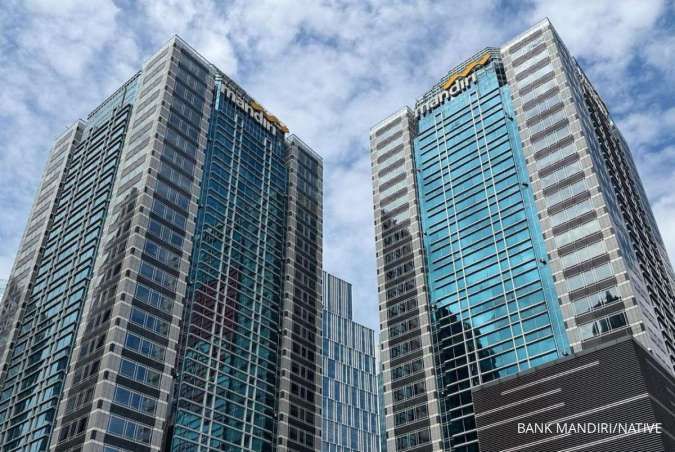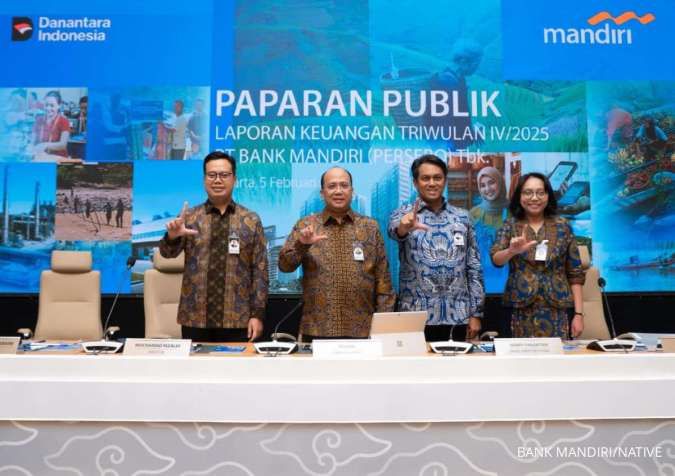JAKARTA. Despite suffering its first-ever annual trade deficit in 2012, Indonesia is looking to a potential growth of exports based on the significant increase in export volumes of products in the downstream sector.Deputy Trade Minister Bayu Krisnamurthi said that although the country’s 2012 exports saw an overall 6.61 percent decline to US$190.04 billion compared to the previous year, some processed products actually saw a significant increase in export volume. He attributed the increase to the government’s policy to limit the export of raw materials and a strengthening of the downstream sector.Bayu pointed to products processed from cacao, crude palm oil (CPO) and rattan as examples.“Exports of processed products from cacao and CPO in 2012 were significantly up compared to the previous year and have surpassed raw materials after regulations to focus on exporting value-added products were imposed,” Bayu explained to a conference on Monday.He added that revenue from the products was also increasing, although the number did not quite keep pace with the increase in volume exported due to unfavorable external situations in the global economy.According to Central Statistics Agency (BPS) data, exports of processed cacao products surged 29.48 percent to 188,500 tons compared to 145,700 tons in 2011.Exports of processed products contributed 55 percent to total cacao exports in 2012, compared to 43 percent in the previous year, after the Agriculture Ministry issued a ministerial regulation to encourage exports of fermented cacao and to limit the export of raw cacao earlier that year. Exports of cacao products generated $566.1 million in 2012, rising 2 percent compared to the previous year.Exports of palm oil products soared 47.67 percent to 12.54 million tons from 8.49 million tons in 2011, and contributed 65.9 percent to total palm oil exports. Exports of palm oil products reached $12.1 billion last year, up 31.3 percent compared to the previous year, according to BPS. Bayu said that a ministry regulation restricting the export of raw rattan issued in 2011 had boosted exports of both rattan furniture and handicrafts, as they saw 26.9 percent and 213.8 percent increases to $215.7 million and $42.4 million, respectively, compared to those in 2011.Despite the positive performance of the upgraded export goods, Bayu said that the 2012 trade deficit was unavoidable due to the slowdown of the international economy, which affected the consumer confidence index in export destination countries. The oil and gas trade deficit, which reached $5.6 billion due to the high demand for subsidized fuel in the country, also was to blame.“We find that the declining consumer confidence in destination countries is highly correlated to Indonesia’s declining exports,” Bayu said.Exports of non-oil and gas products to China and Japan, for example, dropped by 3.39 percent and 6.4 percent to $20.86 billion and $17.23 billion, respectively, while the two countries’ consumer confidence indexes showed a 1.4 and 0.2 decline.“But we still have these emerging markets where our exports are rising significantly,” Bayu said. Indonesia’s exports to Pakistan and Saudi Arabia in 2012, for instance, increased 48.06 percent and 24.01 percent to $1.38 billion and $1.77 billion, respectively, from 2011 levels.Bayu, however, warned that the country might still face a trade deficit in the upcoming months if no action was taken to improve the balance of trade in the oil and gas sector.“Our non-oil and gas sector trade in 2012 reached $4 billion surplus, and considering last year we still saw a $775.5 million surplus in the oil and gas sector, we should be aware of the rapid decline. We simply hope that our export profile in non-oil and gas can cover the performance in the energy sector,” Bayu said. (aml/ The Jakarta Post)
RI sees hope in export of processed products
JAKARTA. Despite suffering its first-ever annual trade deficit in 2012, Indonesia is looking to a potential growth of exports based on the significant increase in export volumes of products in the downstream sector.Deputy Trade Minister Bayu Krisnamurthi said that although the country’s 2012 exports saw an overall 6.61 percent decline to US$190.04 billion compared to the previous year, some processed products actually saw a significant increase in export volume. He attributed the increase to the government’s policy to limit the export of raw materials and a strengthening of the downstream sector.Bayu pointed to products processed from cacao, crude palm oil (CPO) and rattan as examples.“Exports of processed products from cacao and CPO in 2012 were significantly up compared to the previous year and have surpassed raw materials after regulations to focus on exporting value-added products were imposed,” Bayu explained to a conference on Monday.He added that revenue from the products was also increasing, although the number did not quite keep pace with the increase in volume exported due to unfavorable external situations in the global economy.According to Central Statistics Agency (BPS) data, exports of processed cacao products surged 29.48 percent to 188,500 tons compared to 145,700 tons in 2011.Exports of processed products contributed 55 percent to total cacao exports in 2012, compared to 43 percent in the previous year, after the Agriculture Ministry issued a ministerial regulation to encourage exports of fermented cacao and to limit the export of raw cacao earlier that year. Exports of cacao products generated $566.1 million in 2012, rising 2 percent compared to the previous year.Exports of palm oil products soared 47.67 percent to 12.54 million tons from 8.49 million tons in 2011, and contributed 65.9 percent to total palm oil exports. Exports of palm oil products reached $12.1 billion last year, up 31.3 percent compared to the previous year, according to BPS. Bayu said that a ministry regulation restricting the export of raw rattan issued in 2011 had boosted exports of both rattan furniture and handicrafts, as they saw 26.9 percent and 213.8 percent increases to $215.7 million and $42.4 million, respectively, compared to those in 2011.Despite the positive performance of the upgraded export goods, Bayu said that the 2012 trade deficit was unavoidable due to the slowdown of the international economy, which affected the consumer confidence index in export destination countries. The oil and gas trade deficit, which reached $5.6 billion due to the high demand for subsidized fuel in the country, also was to blame.“We find that the declining consumer confidence in destination countries is highly correlated to Indonesia’s declining exports,” Bayu said.Exports of non-oil and gas products to China and Japan, for example, dropped by 3.39 percent and 6.4 percent to $20.86 billion and $17.23 billion, respectively, while the two countries’ consumer confidence indexes showed a 1.4 and 0.2 decline.“But we still have these emerging markets where our exports are rising significantly,” Bayu said. Indonesia’s exports to Pakistan and Saudi Arabia in 2012, for instance, increased 48.06 percent and 24.01 percent to $1.38 billion and $1.77 billion, respectively, from 2011 levels.Bayu, however, warned that the country might still face a trade deficit in the upcoming months if no action was taken to improve the balance of trade in the oil and gas sector.“Our non-oil and gas sector trade in 2012 reached $4 billion surplus, and considering last year we still saw a $775.5 million surplus in the oil and gas sector, we should be aware of the rapid decline. We simply hope that our export profile in non-oil and gas can cover the performance in the energy sector,” Bayu said. (aml/ The Jakarta Post)

